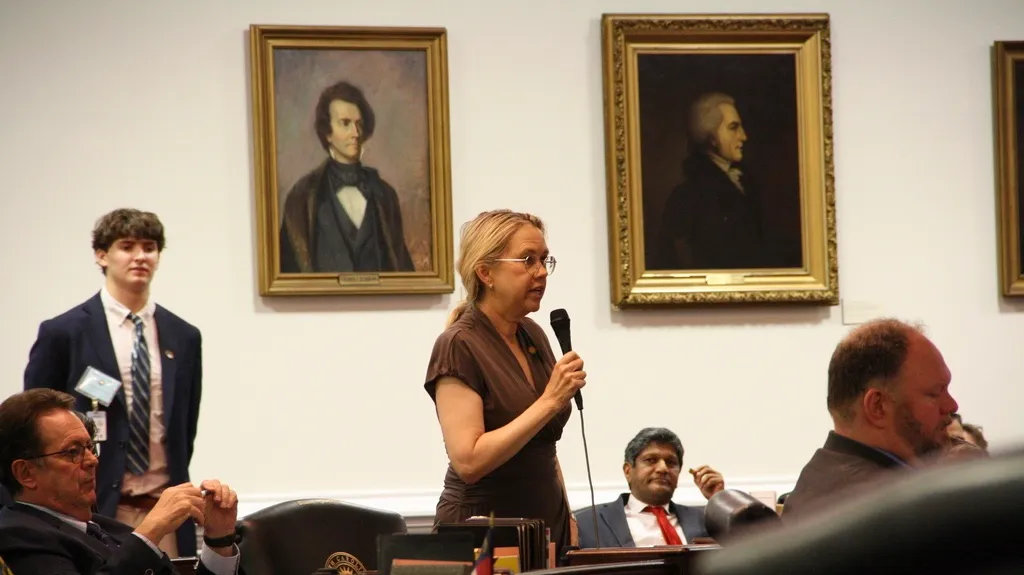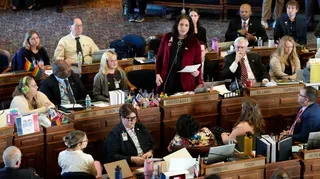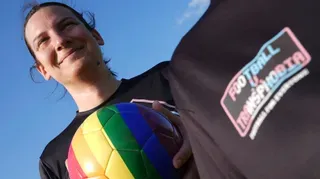October 11, 2007
Barney Frank Speaks Out
David Foucher READ TIME: 5 MIN.
On Oct. 9 Congressman Barney Frank spoke on the floor of the House to explain his decision to split the Employment Non-Discrimination Act (ENDA) into two bills, one focusing on sexual orientation and the other on gender identity, and he responded to critics of his strategy. The following are excerpts from his speech, as reported in the Congressional Record: Read the full text here.
"I know, Mr. Speaker, that there are today people who are unhappy with my position because I believe, to get to the central point here, that we have the votes to pass a bill today in the House that would ban discrimination in employment based on sexual orientation, but sadly, we don't yet have it on gender identity. And I differ with some as to what we do about that.
"But one of the problems we have today, both on this issue, and as I will discuss in a little bit in general, is people in our society, the most deeply committed, who believe that when a politician tells them an unpleasant fact, he or she must somehow be embracing that fact. Because I have been one of those who has felt the obligation to tell my friends in the transgender community that prejudice against them is greater than prejudice against gay men and lesbians for some of the reasons I talked about, I have been asked why I am so opposed to fairness for people of transgender. ...
"Now, there is one argument, let me actually hit two arguments, that people will say as to why we shouldn't go ahead now. One, they say, well, you know what, it's strategic. The President is not going to sign the bill anyway. Why go ahead with sexual orientation now without transgender?
"But that argument is not being made honestly, because the argument is not that we shouldn't go ahead and pass the bill that George Bush would veto. The position taken by the various groups that want us to kill the gay rights bill now, because we do not have the votes to include transgender, are people who say to us, never pass the bill, even if you get a Democratic President who would sign it in 2009, and you get a House and Senate majority ready to pass it in early 2009, do not protect millions of people in this country against discrimination based on sexual orientation until you can protect everybody now unprotected.
"I don't think that's morally a valid position, but let's be fair. It's not a tactical issue about whether you do it now or then. It's do you ever do it. ...
"One other argument we get is, well, if you pass a sexual orientation, antidiscrimination law, you won't be protecting even gay and lesbian people, because people will then be able to fire gay men on the grounds that they are effeminate, not that they are gay. They will fire lesbians for being too masculine and that will take away the protection. ...
"But I have challenged people to give me one case in which in a State which protects only against sexual orientation, and most States had that originally and it was that way in many States for a while and it's still that way in a lot of other States, is there one case where a person was fired because of her sexual orientation, and that firing was upheld in the teeth of the law that said you couldn't do that because she was too masculine?
"There are no such cases.
"And I asked Lambda Legal which may decide to give me a case. They have the one case that they allude to. They don't give the citation often because it is so clearly not supportive of that position. It's Dawson against Bumble & Bumble. ... Dawson against Bumble & Bumble is a case from the State of New York. ... And what the three-judge panel says here affirming a district court judge is very simple. The woman who brought the claim wasn't able to show that she was discriminated against on any ground. In fact, the argument was, you know, you didn't have transgender protection in the New York State law; that's why she was fired. It was mostly a case about title 7 of the federal law, which doesn't even mention sexual orientation, and much of the case comes up with her trying to get sexual orientation into it. But in fact, as the judges point out, let me read what the three-judge court said, and this is a claim from Lambda Legal, that this shows that you could fire a lesbian on the grounds of her being too mannish because she didn't have gender identity protection. Listen to who fired her. The district court found it to be particularly significant that Connie Voines, the manager of the salon and the individual who ultimately decided to terminate Dawson, is a 'presurgery male to female transsexual who, at the time of the events in question, was transitioning from appearing male to appearing female.' She was fired by a transsexual. How in the world would having sexual gender identification protection have kept her from being fired by a transsexual? She was fired because she was a lousy haircutter. ...
"The fact that we are on the verge of passing a bill to protect people against discrimination based on sexual orientation is a wonderful breakthrough in this country. We've been fighting for it for over 30 years. A year ago, when we were trying to fend off a right-wing effort to ban same-sex marriage in Massachusetts and retroactively cancel the marriages of thousands of people, I don't think people were confident that we would be on the verge of passing a sexual orientation antidiscrimination bill. That's a wonderful moment as we make advance after advance in civil rights. And I will not allow people without my dissenting to turn that great breakthrough into some mark of weakness. ...
"Let me put it to you this way, Mr. Speaker: of course you should start with ideals. You don't belong in this line of work making rules that other people have to abide by unless you are motivated by a genuine idealism about how the world should be. But the more committed you are to your ideals, the more you are morally obligated to be pragmatic about achieving them. What good are your ideals if they're never achieved and all they do is make you feel pure?"
David Foucher is the CEO of the EDGE Media Network and Pride Labs LLC, is a member of the National Lesbian & Gay Journalist Association, and is accredited with the Online Society of Film Critics. David lives with his daughter in Dedham MA.







